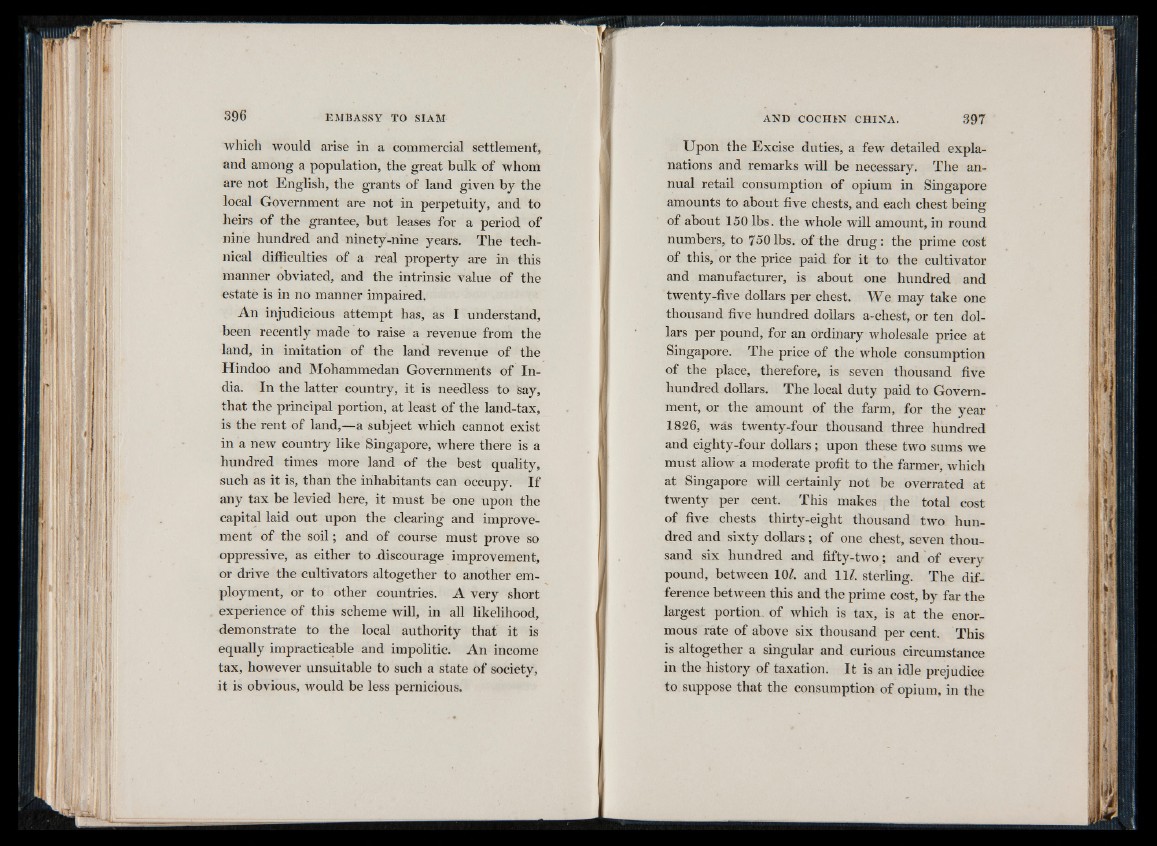
which would arise in a commercial settlement,
and among a population, the great bulk of whom
are not English, the grants of land given by the
local Government are not in perpetuity, and to
heirs of the grantee, but leases for a period of
nine hundred and ninety-nine years. The technical
difficulties of a real property are in this
manner obviated, and the intrinsic value of the
estate is in no manner impaired.
An injudicious attempt has, as I understand,
been recently made to raise a revenue from the
land, in imitation of the land revenue of the
Hindoo and Mohammedan Governments of In dia.
In the latter country, it is needless to Say,
that the principal portion, at least of the land-tax,
is the rent of land,—a subject which cannot exist
in a new country like Singapore, where there is a
hundred times more land of the best quality,
such as it is, than the inhabitants can occupy. I f
any tax be levied here, it must be one upon the
capital laid out upon the clearing and improvement
of the soil; and of course must prove so
oppressive, as either to -discourage improvement,
or drive the cultivators altogether to another employment,
or to other countries. A very short
experience of this scheme will, in all likelihood,
demonstrate to the local authority that it is
equally impracticable and impolitic. An income
tax, however unsuitable to such a state of society,
it is obvious, would be less pernicious.
Upon the Excise duties, a few detailed explanations
and remarks will be necessary. The annual
retail consumption of opium in Singapore
amounts to about five chests, and each chest being
of about 150 lbs. the whole will amount, in round
numbers, to 750lbs. of the drug: the prime cost
of this, or the price paid for it to the cultivator
and manufacturer, is about one hundred and
twenty-five dollars per chest. We may take one
thousand five hundred dollars a-ehest, or ten dollars
per pound, for an ordinary wholesale price at
Singapore. The price of the whole consumption
of the place, therefore, is seven thousand five
hundred dollars. The local duty paid to Government,
or the amount of the farm, for the year
1826, was twenty-four thousand three hundred
and eighty-four dollars; upon these two sums we
must allow a moderate profit to the farmer, which
at Singapore will certainly not be overrated at
twenty per cent. This makes the total cost
of five chests thirty-eight thousand two hundred
and sixty dollars; of one chest, seven thousand
six hundred and fifty-two; and of every
pound, between 10/. and 11/. sterling. The difference
between this and the prime cost, by far the
largest portion, of which is tax, is at the enormous
rate of above six thousand per cent. This
is altogether a singular and curious circumstance
in the history of taxation. I t is an idle prejudice
to suppose that the consumption of opium, in the